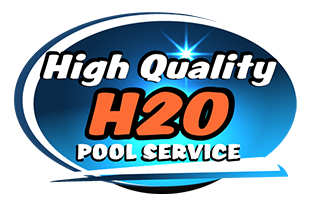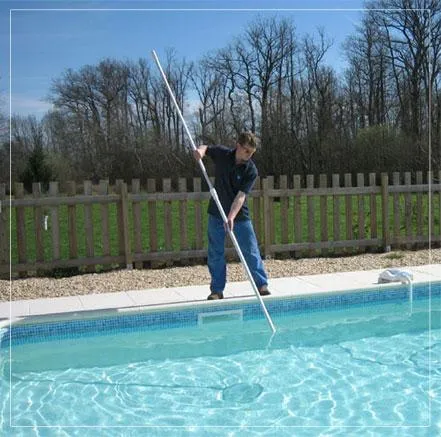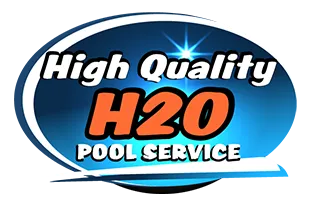May 23, 2022 by HQ Pools
Chlorine is a necessity for regular pool maintenance, keeping the water disinfected and safe to swim in all summer long. The question isn’t if you should use chlorine, but what type you should use. High Quality H2O Pool Service is here to address all of the questions you have about what type of chlorine you should use for your pool.
CHLORINE TABLETS (TRICHLOR)
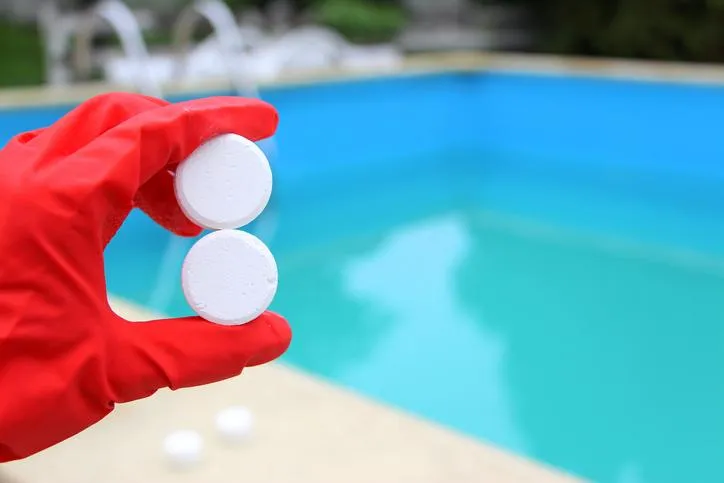
Tablets are one of the most common forms of chlorine for residential pool use, and for good reason. In terms of both time and money, tablets are relatively inexpensive and can be passively dispersed.
One consideration when using chlorine tablets is that the pH of the tablets are low–around a 3–so you’ll need to buy a pH booster in order to bring the pH of the pool water back up to a more neutral 7-7.6. The chlorine tablets are roughly 90% chlorine, so they make for a highly effective disinfectant.
If you choose tablets, it’s important to make sure it is evenly dispersed. Using an automatic chlorinator is advised, however, you can get away just fine with a simple chlorine dispenser if you have a lower budget.
LIQUID BLEACH
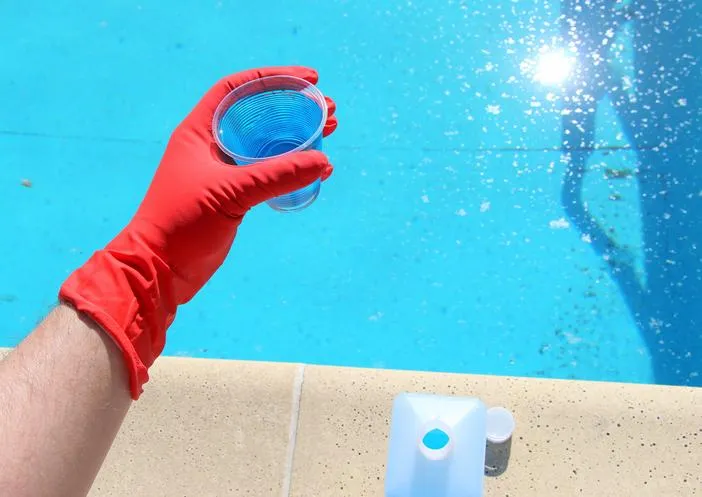
Sodium hypochlorite, or liquid bleach, is the cheapest available option for residential pool owners–but that doesn’t mean we recommend it. Liquid bleach requires a knowledge of how to properly balance your pool with acid, which reduces the cost-effectiveness of it. It can also be corrosive to pool surfaces with extended use over time, making the short-term cost savings irrelevant down the road.
Pool professionals like using liquid bleach for larger commercial pools because of the lower cost and the ability to add it in bulk, but we recommend you stay away from it for your residential pool unless you know what you’re doing.
CALCIUM HYPOCHLORITE

Calcium hypochlorite, or cal-hypo, is probably the most popular choice for powdered chlorine amongst residential pool owners. At 65% chlorine, it tends to be the most effective of all the chlorine sanitizers, although it comes in at a slightly higher price than tablets.
The main drawback of cal-hypo is that it will raise the calcium hardness levels in your pool. If pool water stays too hard for too long, it can start to corrode the pool surfaces and cause extensive damage. Cal-hypo is also alkaline with a pH of 12, so you’ll need to balance it out with acid.
Of course, you may not feel like doing any of this, and that’s where High Quality H2O Pool Service comes in. We’ll regularly maintain your pool so you don’t have to do anything but enjoy it.Contact us today!
